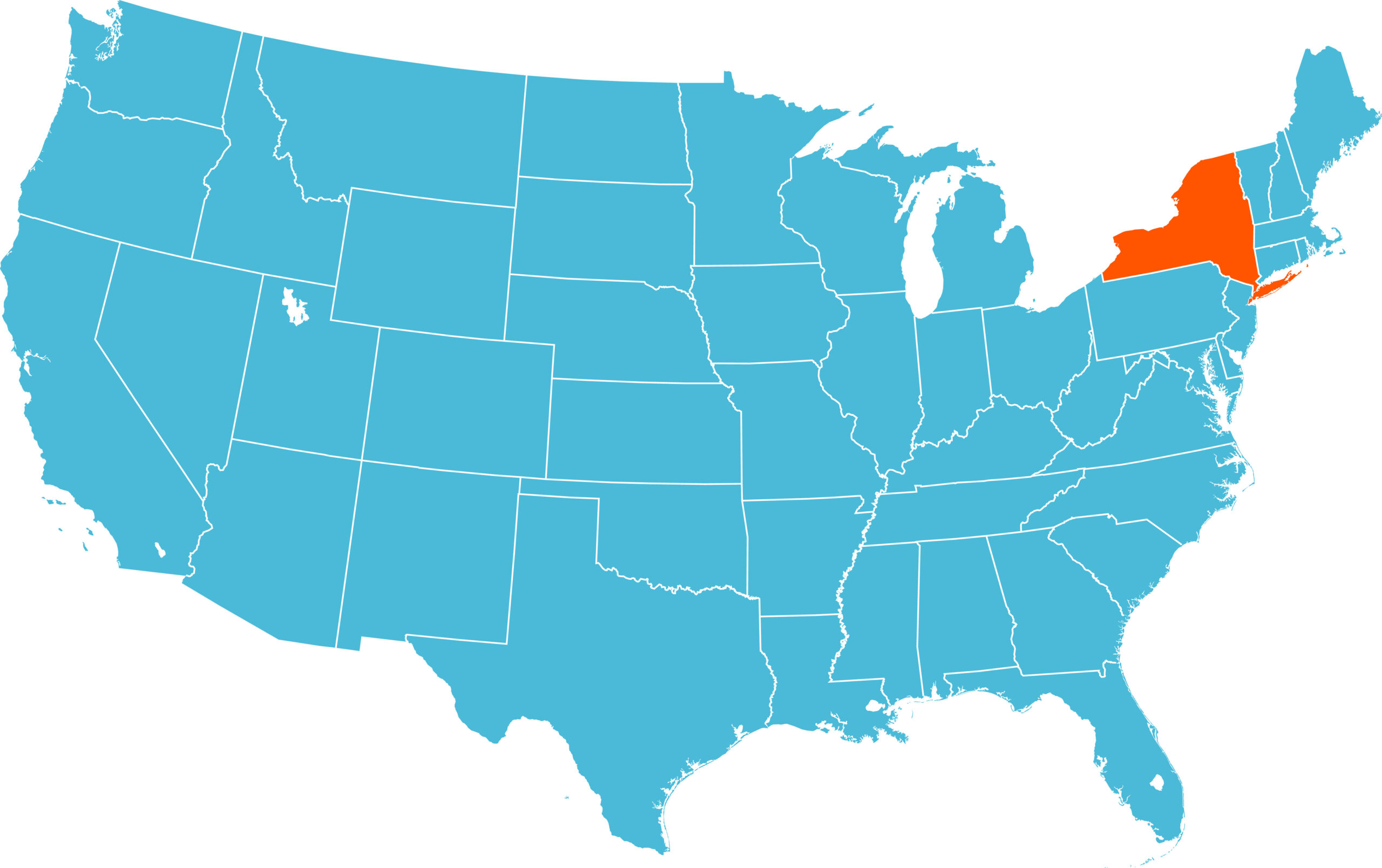On Dec. 22, 2021, New York Gov. Kathy Hochul signed Senate Bill 1780C. Making New York the 38th state to approve permanent remote online notarization (RON) law.
This bill created permanent legislation allowing notaries to use RON beginning on June 30, 2022. However, the governor delayed the law by a subsequent executive law signed on Feb. 24, 2022. The law moved the effective date to Jan. 31, 2023. The delay allowed the industry time to transition from remote ink-signed notarization (RIN) to RON in the Empire State. It is also important to note that IPEN remains available in New York after Jan. 31, 2023.
Today, the permanent RON law is effective immediately. This new law is a notable change to the traditional notarization process. It allows individuals to have their documents notarized online without needing in-person meetings with a notary public.
With this new law, New York State joins 44 states, including Washington, D.C., who adopted RON to make the notarization process more convenient and accessible for individuals. RON can be especially beneficial for those who live in rural areas, have mobility issues, or prefer the convenience of RON. However, before jumping on your computer to start the notarization, there are vital points to know.
What documents can be notarized in the Empire State?
Under the new law, notaries notarize various legal documents with RON, including deeds, mortgages, and powers of attorney. However, documents such as wills, adoption papers, and court orders are not eligible for RON in New York.
New York RON identification process
New York is the third state, after Virginia and Florida, to require fulfillment of Federal identity standards for the identity verification of the signer.
The process of RON begins with the individual requesting the notarization to provide their personal information, including their name and address, to the notary public. The signer then provides a government-issued ID and completes a video conference with the notary public. During the video conference, the notary public verifies the individual’s identity and confirms that the notarized document is authentic.
The identification procedures are virtually the same as for the other RON states. There must be a remote presentation of a government identity credential, a successful passage of a credential analysis by a third-party technology provider, and a successful identity proofing to a NIST L2 assurance level.
New York RON and notary requirements
It is important to note that notary publics must follow strict guidelines to ensure the authenticity and security of the process and that the individuals using RON must have the necessary technology to complete the process. The notary must use a digital certificate with public key infrastructure (PKI) capability. PKI refers to tools used to create and manage public keys for encryption. This is a standard method of securing data transfers online.
Using a RON provider, such as eNotaryLog, the notary must keep electronic journal entries and an audio-visual recording of each notary signing session. They must also cancel or refuse to perform a notarization if the signer is under duress or mentally incompetent.
New York RON technology
The RON process begins with setting up the notarial act by visiting the website of your chosen RON vendor. The document is uploaded for notarization, and the participating parties are proven. Once the transaction is ready, the participants undergo an identity-proofing process. The process leverages technology to deter fraud by ensuring the participant’s identity.
Afterward, the participants will join a virtual room with a live audio and video feed with a notary so that the notary and participants can freely communicate and conduct the notarial act in real time by applying electronic signatures and seals to the documents. There is no state technology approval or certification requirement. The notary must only register and describe the technology to perform electronic notarial acts.
At the end of the video conference, the notary public uses an electronic signature to notarize the document. The document is then sent back to the individual. Lastly, it is stored in a secure database, which authorized parties can access.
The signing platform must record/track the physical location of the notary (to ensure that the notary is physically located in New York when performing the notarization.
What are the benefits of RON for New York?
The new law for remote online notarization in New York State is a notable change that will make the notarization process more convenient and accessible for individuals. It will help to reduce the barriers for those who live in rural areas, have mobility issues, or prefer convenience. Today’s technology will streamline the notarization process and make it more convenient for individuals.
Now is the perfect time for New York professionals, particularly those in real estate, lenders, and title professionals, to check out enotarylog.com. We can assist with digitizing the closing process and give them the tools for RON.



